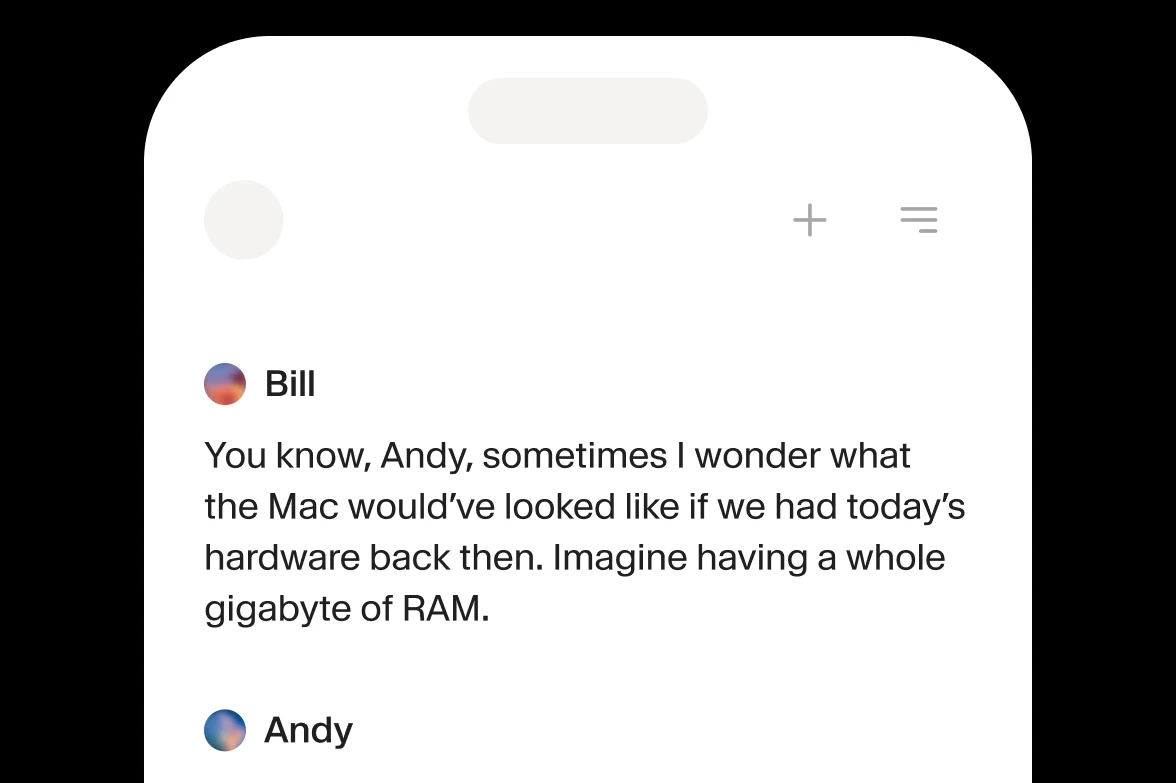VOICE CLONING
Voice Cloning
Create a replica of your voice that sounds like you
Upload a short audio sample and generate natural-sounding speech from text for voiceovers, ads, podcasts, and more - all in your own voice.
Lily
Graceful female narrator voice
Lily
Graceful female narrator voice
Original voice
Cloned voice
Meet the most accurate and advanced AI Voice cloning
Create a digital replica of your voice that sounds just like you. Create instant voice clones with just a few seconds of sample audio, or capture very unique accents and vocal traits using our professional voice cloning. Perfect for any use case imaginable.

AI voices that stay unmistakably yours
Create lifelike voice clones that carry your tone, emotion, delivery, and personality with unmatched realism.

Professional Voice Cloning (PVC)
Capture every nuance of a voice using a dedicated hyper-realistic voice model that’s indistinguishable from the original voice.
Original voice
Cloned voice
Instant Voice Cloning (IVC)
Create a lifelike voice in moments using just a 10-second recording. Ideal for fast, high-quality voice generation.
Multilingual voice clones
Generated voice clones can automatically speak 32+ languages.
Control emotion & delivery
Adjust pacing, energy, clarity, and emotion to craft your vocal style.
Security and privacy
Your voice data is encrypted and protected from unauthorized use.
AI voice clones for a wide range of use cases
Powering everything from long-form narration to real-time dialogue with consistent, human-level quality
Audiobooks

Podcasts
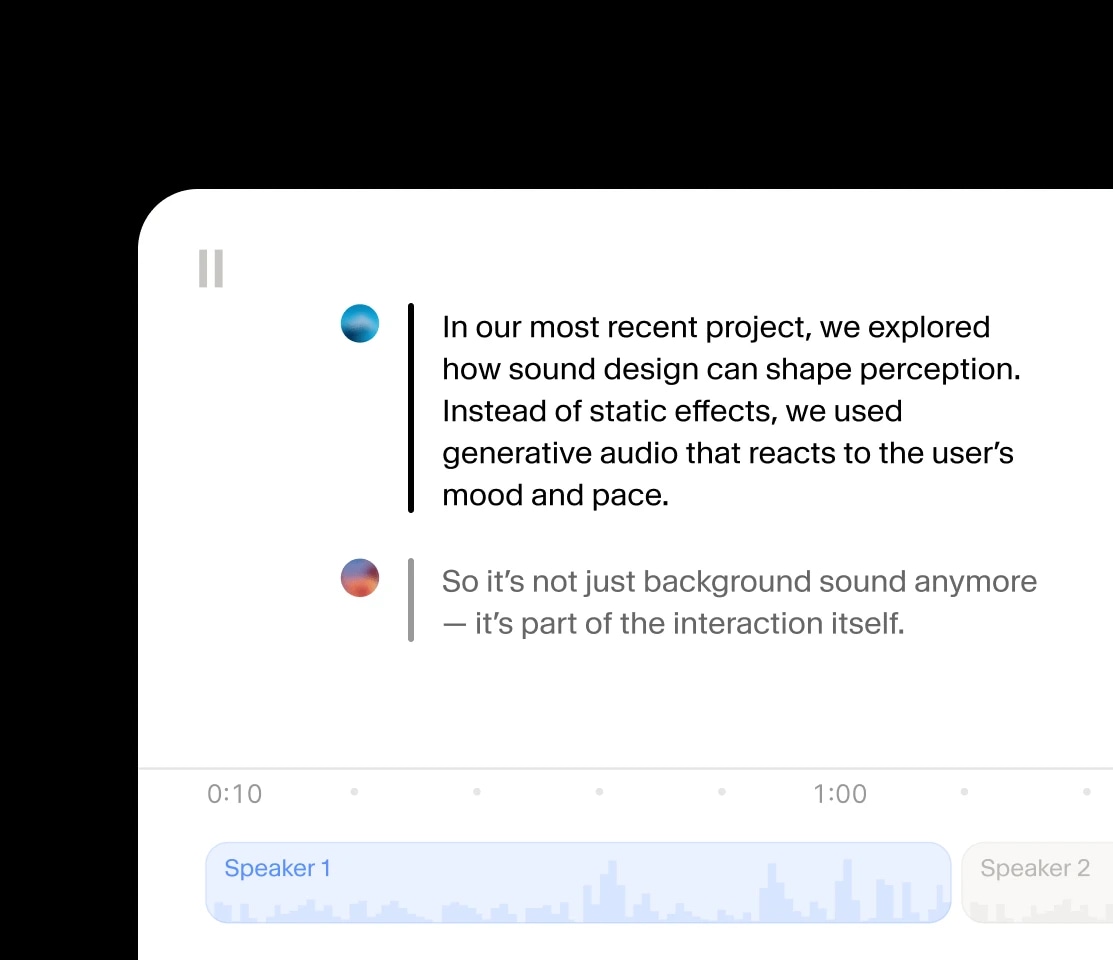
Video Voiceovers

Video Games

Advertising
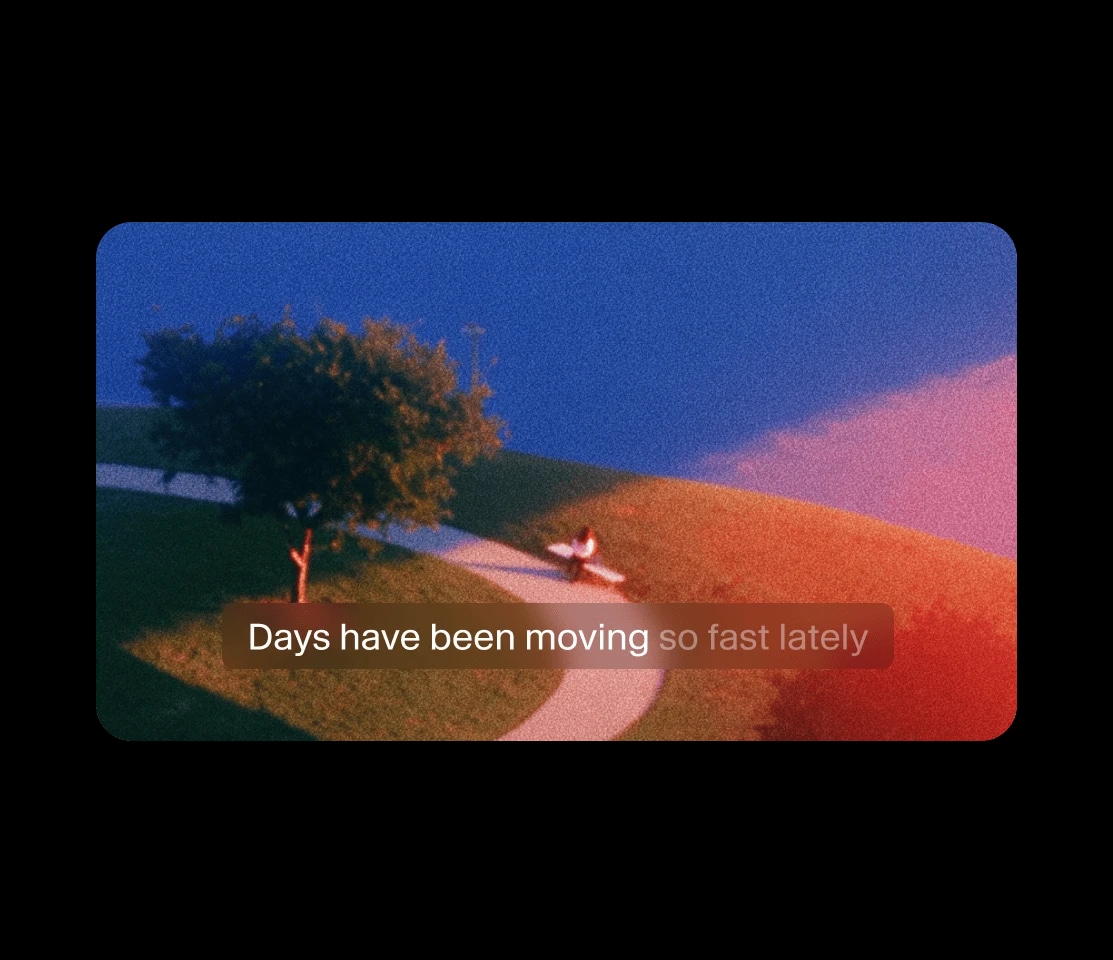
Select the cloning mode based on your needs
Choose between instant voice cloning for speed, or professional voice cloning for maximum realism and long-term use.
Create a digital replica of your voice
Get started today and begin using your AI voice clone in just a few minutes.
Built on advanced AI, designed for responsible use
How AI Voice Cloning Works
Our voice cloning tool uses advanced AI and deep learning algorithms to analyze speech patterns, tone, and vocal characteristics from your audio samples.
Upload Your Audio Sample
Select the cloning mode and record or upload a clear audio sample.

AI Analyzes Your Voice
Our artificial intelligence processes your audio files, learning the unique characteristics of your voice.

Generate Natural Speech
Create speech narrated in your own voice, or use it in Studio to create voiceovers, audiobooks and more.

Enterprise-grade security and infrastructure at scale
Trusted by the World’s Leading Creators & their communities
Available on the web, mobile and via APIs or SDKs
ElevenLabs Studio
The best AI audio models in one powerful editor.
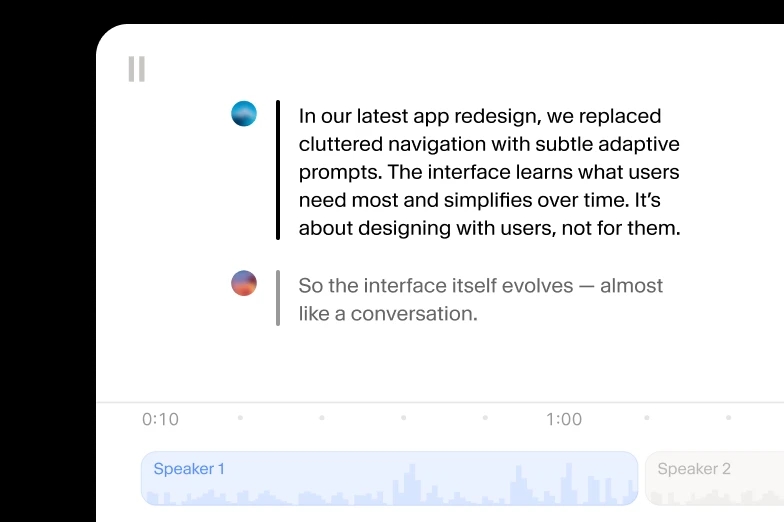
Voice Cloning APIs and SDKs
Integrate Voice Cloning into your product via WebSockets or SDKs.
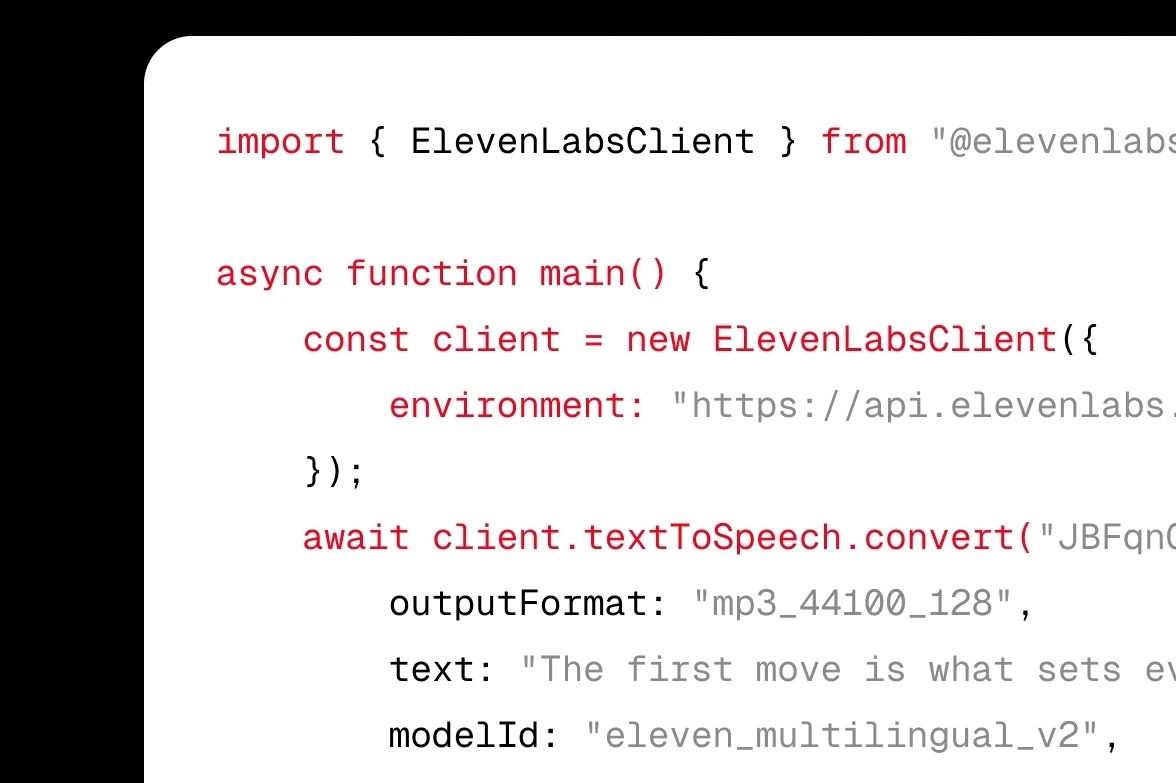
Create Speech on the go
Generate speech in your own voice on the go
